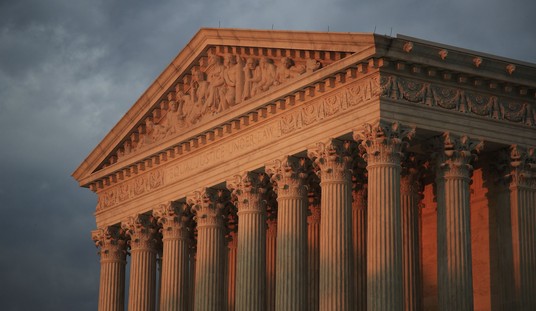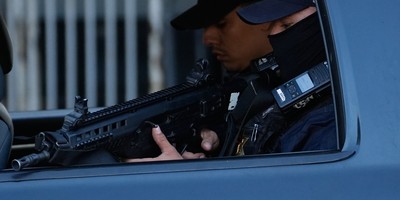The so-called Geneva agreement -- signed by six world powers and Iran this past weekend -- alleviates some economic sanctions against the Republic of Iran in exchange for short-term concessions vis-à-vis their nuclear program. The deal is a temporary diplomatic breakthrough, lasting six months, and intended to give the P5+1 nations time to broker a comprehensive, long-term diplomatic resolution addressing Iran's nuclear capabilities. A plurality of Americans, albeit not a majority, support the interim accord:
(Reuters) - Americans back a newly brokered nuclear deal with Iran by a 2-to-1 margin and are very wary of the United States resorting to military action against Tehran even if the historic diplomatic effort falls through, a Reuters/Ipsos poll showed on Tuesday.
The findings were rare good news in the polls for President Barack Obama, whose approval ratings have dropped in recent weeks because of the botched rollout of his signature healthcare reform law.
According to the Reuters/Ipsos survey, 44 percent of Americans support the interim deal reached between Iran and six world powers in Geneva last weekend, and 22 percent oppose it.
While indicating little trust among Americans toward Iranian intentions, the survey also underscored a strong desire to avoid new U.S. military entanglements after long, costly wars in Iraq and Afghanistan.
While the deal is receiving plaudits from voters, the agreement is doing precious little to improve the president’s favorability numbers, which are still hovering at historic lows:
Even as the poll showed a moderately favorable response to Obama's attempt at rapprochement with Iran, the diplomatic breakthrough did not appear to have offered any immediate political boost at home to the embattled president. Foreign affairs rarely trump domestic matters in terms of presidential popularity.
"This might have an effect on some of the political dialogue," Clark said. "But I don't think it's a game-changer that's going to reverse the tide from the president's current pretty negative approval ratings."
A separate Reuters/Ipsos tracking poll on Tuesday showed Obama's approval rating languishing at 38 percent, with 56 percent disapproving of the way he is handling his job. He spent the past three days on a swing through Western states trying to recover lost ground over his flawed healthcare rollout.
Recommended
Not everyone is sanguine about the deal, however. Writing in the Wall Street Journal, Bret Stephens described the deal as “worse than Munich” and the Paris Peace Accords --agreements that, respectively, appeased Hitler and ended the war in Vietnam:
Consider: Britain and France came to Munich as military weaklings. The U.S. and its allies face Iran from a position of overwhelming strength. Britain and France won time to rearm. The U.S. and its allies have given Iran more time to stockpile uranium and develop its nuclear infrastructure. Britain and France had overwhelming domestic constituencies in favor of any deal that would avoid war. The Obama administration is defying broad bipartisan majorities in both houses of Congress for the sake of a deal.
As for the Vietnam parallels, the U.S. showed military resolve in the run-up to the Paris Accords with a massive bombing and mining campaign of the North that demonstrated presidential resolve and forced Hanoi to sign the deal. The administration comes to Geneva fresh from worming its way out of its own threat to use force to punish Syria's Bashar Assad for his use of chemical weapons against his own people.
He reached a rather ominous conclusion:
And each deal was a prelude to worse. After Munich came the conquest of Czechoslovakia, the Nazi-Soviet pact and World War II. After Paris came the fall of Saigon and Phnom Penh and the humiliating exit from the embassy rooftop. After Geneva there will come a new, chaotic Mideast reality in which the United States will lose leverage over enemies and friends alike.
Whether this deal is “worse than Munich” or not remains to be seen. But many Americans appear quite content with the result.
UPDATE: Rasmussen Reports' findings were similar: 41 percent of respondents support the agreement.

























Join the conversation as a VIP Member